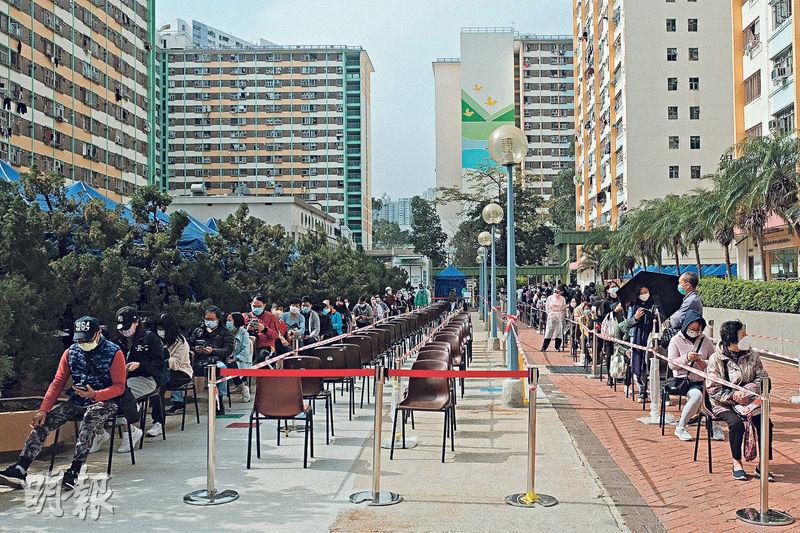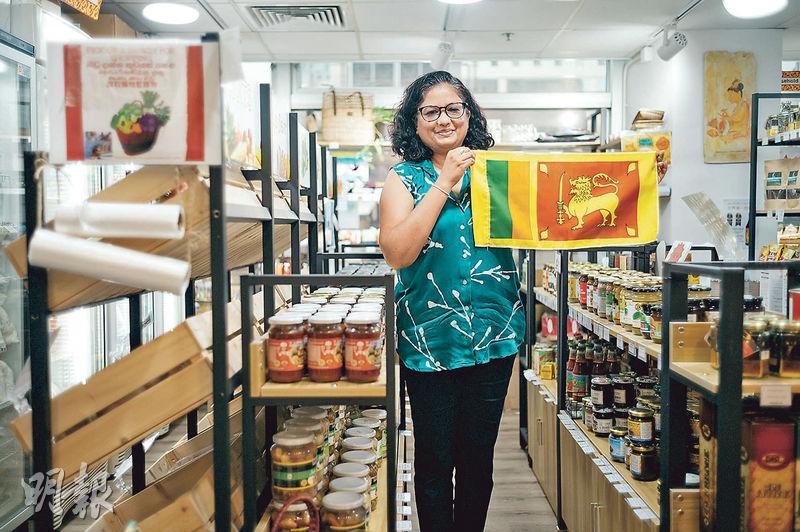Road to 5**:Merge of vaccine passport with LeaveHomeSafe app
【明報專訊】◆News summary
Government employees are now required to get vaccinated against COVID-19 before they can go to work. Furthermore, the Social Welfare Department (SWD) has announced the launch of a ''vaccine bubble'' scheme for nursing homes for the elderly and disabled.
The full-time, part-time and substitute employees of nursing homes must have had at least one dose of COVID-19 vaccine in order to work, unless they hold a valid medical certificate. According to the SWD, about 95% of the staff of the residential care homes have received at least one dose. Those who cannot or have not get the vaccination must be tested regularly.
The Innovation and Technology Bureau added a new function to the ''LeaveHomeSafe'' app to allow the quick display of vaccination proof. Francis Fong, honorary president of the Hong Kong Information Technology Federation, believes that it is not technically complicated to use a colour to show whether a user of the ''LeaveHomeSafe'' app is vaccinated and show it at the venue that the user enters or leaves. Fong says the easiest way to do this is that after a user scans a QR code with the ''LeaveHomeSafe'' app, the user's vaccination status is shown in different colors alongside the user's location, entry and exit time of a venue. Fong does not agree with the idea of incorporating a real-name system or a tracking function into the ''LeaveHomeSafe'' app, arguing that that will result in errors.
●Mock examination question
Do you agree that a vaccine passport policy should be implemented in Hong Kong?
◆Agree:
• Providing extra incentives to getting vaccinated
From an anti-pandemic point of view, the implementation of vaccine passports will incentivize citizens to get vaccinated against COVID-19. After the implementation of a vaccine passport scheme, people who are not vaccinated against COVID-19 will be restricted from entering and leaving public places, which will seriously affect their daily lives. The policy can increase the vaccination rate and enable Hong Kong to fight the pandemic more quickly and effectively, thus returning society to normal.
•Helping the economic recovery
Hong Kong has implemented a series of measures to restrict social distancing, including restrictions on gatherings and bans on dining-in. They have hit restaurants, bars, tourism and other industries. If citizens are vaccinated against COVID-19, thus reducing the risk of illness and severe illness, the government will be able to relax the pandemic prevention measures, so that these industries can resume business and get rid of the difficult situation of low or even zero income caused by pandemic restrictions.
◆Disagree:
•Indirect discrimination
From the perspective of the public interest, a vaccination passport system might constitute discrimination and should not be introduced. Whether or not to get vaccinated is a personal choice and personal right, and there are also people who find it difficult to get vaccinated due to health reasons. If the government sets up a vaccine passport system, people who are unable or unwilling to get vaccinated will be treated differently. That might result in indirect discrimination.
•A rebound of the pandemic
From an anti-pandemic perspective, a vaccine passport system is not ideal, and Hong Kong should not introduce it. Although vaccination is one of the ways to prevent the COVID-19, the effectiveness of the vaccine is not 100% guaranteed, and it may not prevent the mutant virus. The WHO has pointed out that COVID-19 vaccines cannot completely prevent the spread of the virus. Some experts pointed out that the local pandemic situation has rebounded due to the ''false sense of safety'' after vaccination, relaxation of pandemic restrictions, the emergence of new and infectious virus strains, and the too early reopening of borders. A vaccine passport system that uses vaccination as the criterion for relaxing pandemic prevention measures has the potential of cause the pandemic to rebound.
Translated by Odyssey Lang
(本刊發表的文章若提出批評,旨在指出相關制度、政策或措施存在錯誤或缺點,目的是促使矯正或消除這些錯誤或缺點,循合法途徑予以改善,絕無意圖煽動他人對政府或其他社群產生憎恨、不滿或敵意。)
[通通識 第743期]







